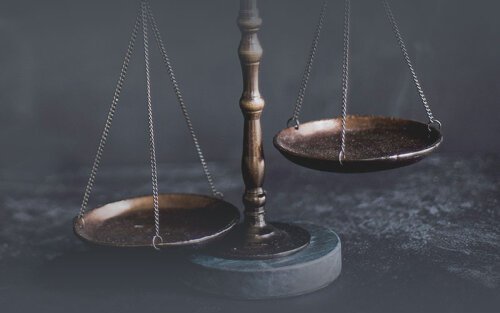Best Bankruptcy Lawyers in Kaunas
Share your needs with us, get contacted by law firms.
Free. Takes 2 min.
List of the best lawyers in Kaunas, Republic of Lithuania
About Bankruptcy Law in Kaunas, Republic of Lithuania
Bankruptcy law in Kaunas, as in the rest of the Republic of Lithuania, is a legal process that allows individuals and businesses who are unable to meet their financial obligations to resolve their debts under the protection of the court. This process is governed by national legislation, but the application of these laws in Kaunas is managed by local courts and the relevant authorities within the municipality. The purpose of bankruptcy proceedings is to enable fair debt repayment to creditors while providing a way for debtors to obtain relief and a fresh financial start.
Why You May Need a Lawyer
Bankruptcy proceedings are complex legal matters that often require specialized knowledge and expertise. People might need legal help in the following situations related to bankruptcy:
- If you are an individual or business struggling with overwhelming debt and unable to meet payment obligations
- If creditors are taking legal action against you or your property is at risk of seizure or auction
- If you are unsure about your eligibility for bankruptcy or need advice about alternatives
- If you need to negotiate with creditors for debt restructuring or repayment planning
- If you are a creditor seeking to initiate bankruptcy proceedings against a debtor
- If you require assistance with the documentation, evidence, and procedural steps involved in bankruptcy court
- If you want to ensure your rights are protected throughout the process, both as a debtor or a creditor
Local Laws Overview
In Kaunas, bankruptcy is regulated by the Law on Bankruptcy of Natural Persons and the Law on Enterprise Bankruptcy of the Republic of Lithuania. These laws establish the criteria for filing for bankruptcy, outline the responsibilities of debtors and creditors, and set the procedures for managing bankrupt assets and settling debts. Notably:
- Personal bankruptcy is available to individuals whose debts exceed their assets and who are unable to pay debts as they come due
- Business bankruptcy can be voluntary (initiated by the debtor) or involuntary (initiated by creditors)
- The process involves the appointment of a bankruptcy administrator, submission of financial statements, and court oversight
- Some assets are protected from liquidation to ensure minimal living standards are maintained for individuals
- There are strict timelines and requirements for submitting claims, objections, and relevant documents
- Bankruptcy has important legal consequences, including potential restrictions on future business activities and personal financial obligations
Frequently Asked Questions
What is the difference between personal and business bankruptcy in Lithuania?
Personal bankruptcy applies to private individuals who cannot pay their debts, while business bankruptcy covers companies and self-employed persons whose businesses are insolvent. Both processes are governed by separate laws and have different procedural rules.
Who can apply for bankruptcy in Kaunas?
Both individuals and legal entities registered in Lithuania can apply for bankruptcy in Kaunas if they meet the criteria of insolvency as defined by Lithuanian law.
How long does the bankruptcy process take?
The length of the bankruptcy process depends on the complexity of the case, but typically it may last from several months to a few years. The timeline is influenced by the size of the debtor's estate, the number of creditors, and legal challenges that may arise.
Will all my debts be written off after bankruptcy?
Not all debts can be discharged through bankruptcy. Certain obligations, such as child support, fines, and some tax debts, may survive bankruptcy. A lawyer can advise you about which debts can be included.
What assets can I keep if I file for personal bankruptcy?
Some personal assets necessary for basic living standards, such as essential household items and a portion of income, may be exempt from liquidation. The exact list of protected assets is determined by law and may require legal interpretation.
What is the role of a bankruptcy administrator?
A bankruptcy administrator is appointed to manage the debtor's estate, ensure fairness to all parties, organize the sale of assets, address creditor claims, and represent the bankruptcy case in court.
Can I start a new business after bankruptcy?
Legal restrictions may apply for some time after bankruptcy, especially for former company directors. However, these restrictions are not permanent, and each case should be assessed individually.
Can creditors challenge the bankruptcy process?
Creditors have the right to object to claims, challenge fraudulent transfers, and participate in the distribution of assets. Courts oversee these disputes to ensure lawful outcomes.
How does bankruptcy affect my credit history?
Bankruptcy will negatively impact your credit rating and may remain on your record for several years, potentially affecting your ability to obtain future credit or loans.
Can I handle bankruptcy without a lawyer in Kaunas?
While you are not legally required to hire a lawyer, bankruptcy procedures are complex and require detailed documentation and legal knowledge. Professional legal help is strongly recommended to avoid mistakes and ensure your rights are fully protected.
Additional Resources
If you need more information or assistance regarding bankruptcy in Kaunas, you may find the following resources helpful:
- Kaunas Regional Court - Handles bankruptcy cases brought in the region
- State Enterprise Centre of Registers - Provides information on companies and insolvency status
- Lithuanian Bar Association - Can assist in finding qualified bankruptcy lawyers in Kaunas
- Insolvency Service under the Ministry of Justice of the Republic of Lithuania - Oversees insolvency professionals and provides public guidance
- Municipal Social Support Departments - May offer guidance and support for individuals facing financial hardship
Next Steps
If you believe bankruptcy may be necessary or you are facing claims from creditors, consider taking the following steps:
- Gather and organize all documentation related to your financial situation, including debts, assets, and income
- Consult a qualified lawyer in Kaunas who specializes in bankruptcy law to discuss your options
- Assess alternative solutions, such as debt restructuring or voluntary agreements with creditors, before proceeding with bankruptcy
- If bankruptcy is the best course of action, your lawyer will help you prepare and file the necessary documents
- Stay informed throughout the process and comply with all legal requirements set by the court and administrators
Taking timely action and seeking professional advice can help you better understand your rights and obligations during bankruptcy and guide you toward a more stable financial future.
Lawzana helps you find the best lawyers and law firms in Kaunas through a curated and pre-screened list of qualified legal professionals. Our platform offers rankings and detailed profiles of attorneys and law firms, allowing you to compare based on practice areas, including Bankruptcy, experience, and client feedback.
Each profile includes a description of the firm's areas of practice, client reviews, team members and partners, year of establishment, spoken languages, office locations, contact information, social media presence, and any published articles or resources. Most firms on our platform speak English and are experienced in both local and international legal matters.
Get a quote from top-rated law firms in Kaunas, Republic of Lithuania — quickly, securely, and without unnecessary hassle.
Disclaimer:
The information provided on this page is for general informational purposes only and does not constitute legal advice. While we strive to ensure the accuracy and relevance of the content, legal information may change over time, and interpretations of the law can vary. You should always consult with a qualified legal professional for advice specific to your situation.
We disclaim all liability for actions taken or not taken based on the content of this page. If you believe any information is incorrect or outdated, please contact us, and we will review and update it where appropriate.
















